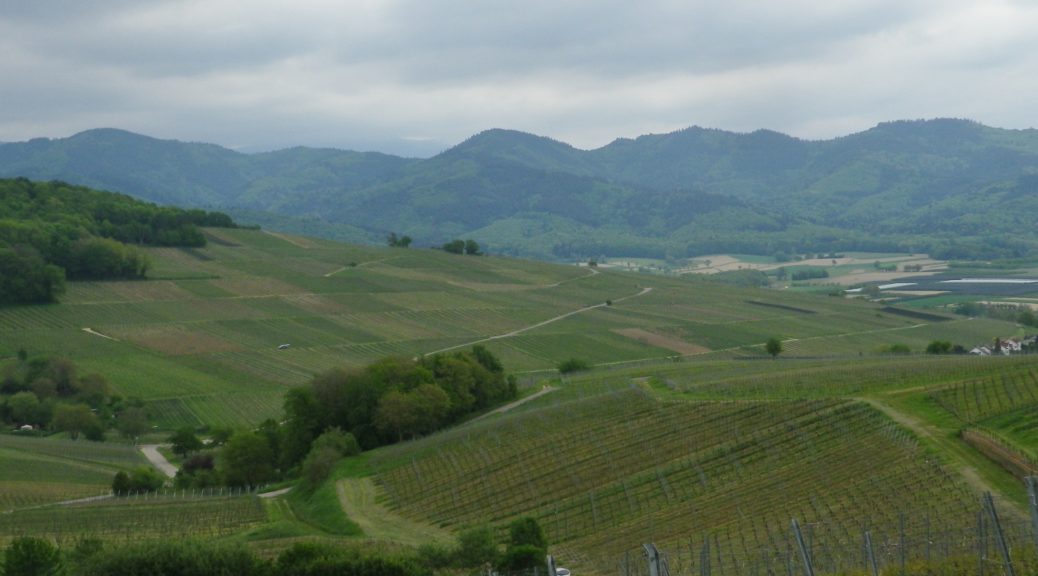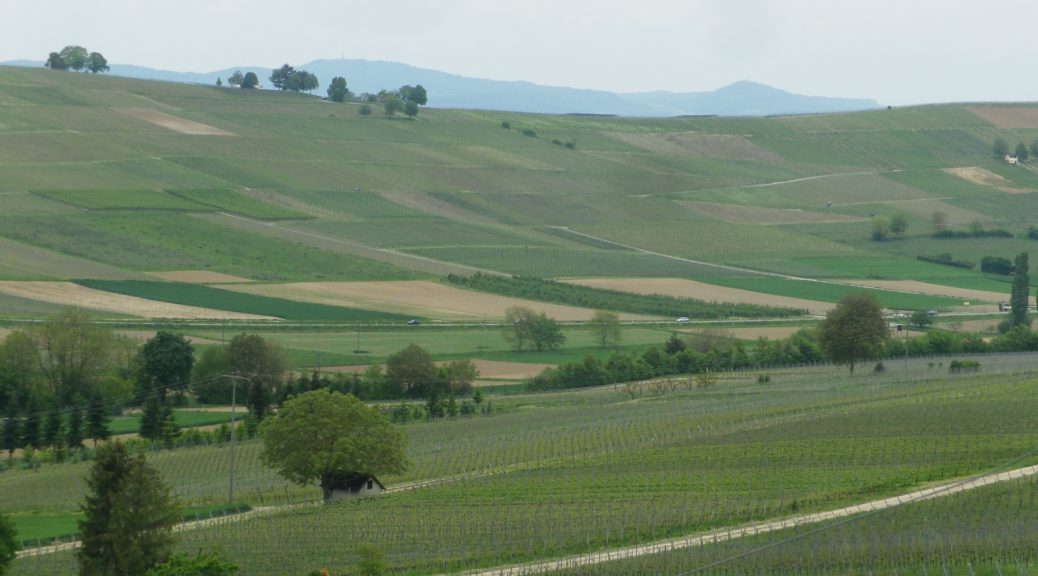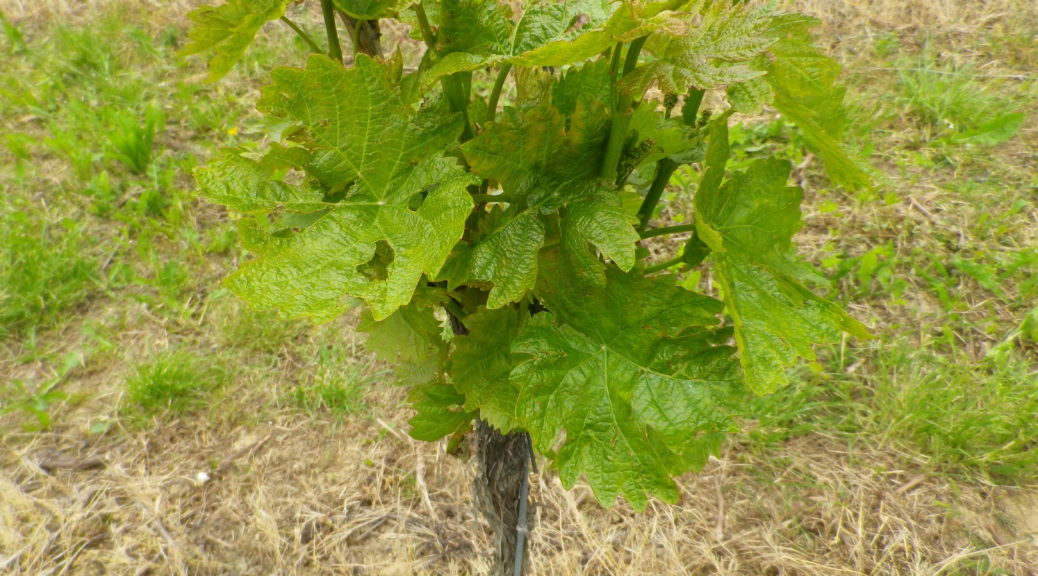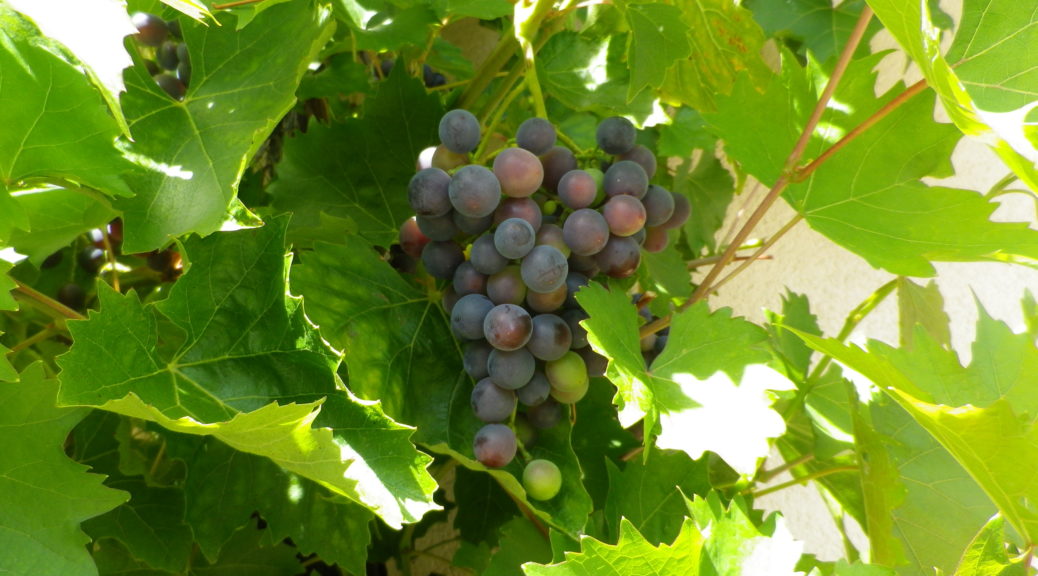Tag Archives: Markgraeflerland wine district
Almost Heaven: Ehrenkirchen
Sometimes pilgrimages bring the pilgrims making the journey closer to heaven. Me, I just felt closer to heaven merely viewing the wide vistas from one of the Markgraeflerland district’s venerated vineyards, passing through old forests, eerily quiet in the face of an impending storm, and confronting the vestiges of pilgrimages past and present. This hike truly was more than just a hiking experience. It synthesized much of what I look for in the vineyard or wine trails I select.
In the first place, the hike proceeded through a few different vineyard areas. The first was the Batzenberg, rising uniquely outside the village, supporting almost nothing but vines on its slope. It is a good, reliable area for vines. Along with the Oberduerrenberg vineyard, that the trail subsequently traversed, these two vineyards represented some of the best parcels in the area. I liked them both for two very different reasons. From the top of the Batzenberg, one could almost feel on top of the world. With nothing but vines, the far-reaching vistas were impressive.
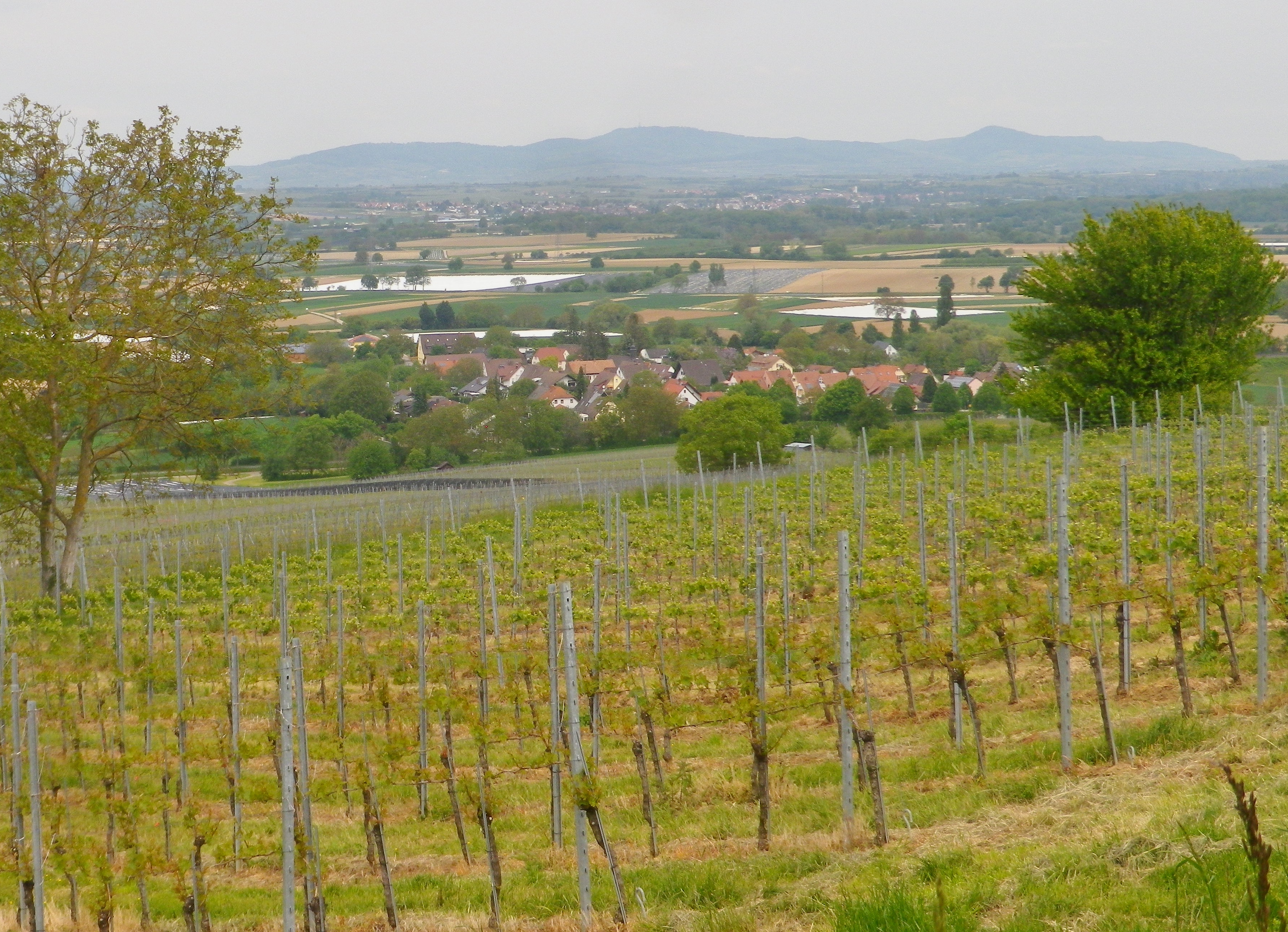
Wine Notes: Markgraeflerland North
What I Learned
The Markgraeflerland district is along the southern-most section of the Rhine as it borders France, in the region of Baden, in the state of Baden-Wuerttemberg, Germany. It is the southern-most wine producing district in Germany. It begins in Weil am Rhein, just outside the Swiss city of Basel, and continues almost to Freiburg. The vineyards lie on the foothills between the river valley floor, and the Black Forest mountains to the east. About 3000 hectares, and 90 cooperatives, cellars and wine estates are dedicated to the production of this region’s wine, carried out the in villages and small towns that dot this area.
Wine Notes: Markgraeflerland II
What I Learned
The Markgraeflerland district is along the southern-most section of the Rhine as it borders France, in the region of Baden, in the state of Baden-Wuerttemberg, Germany. As many other wine regions in the Rhine River valley, the Romans cultivated and harvested grapes here, and with the start of the Carolingian era, viticulture and viniculture took hold again.
